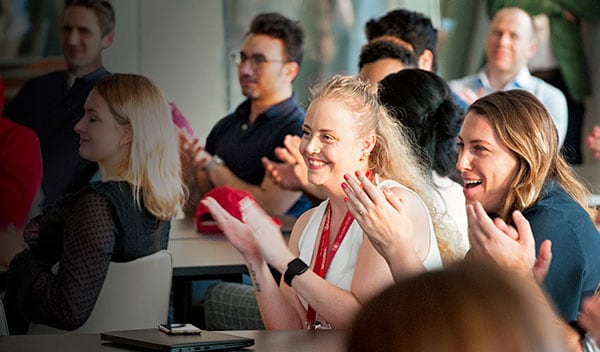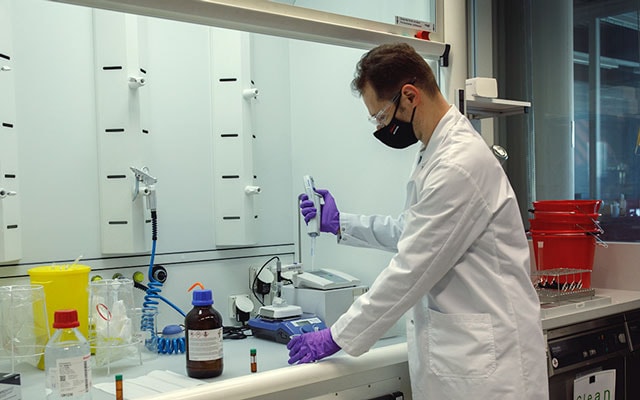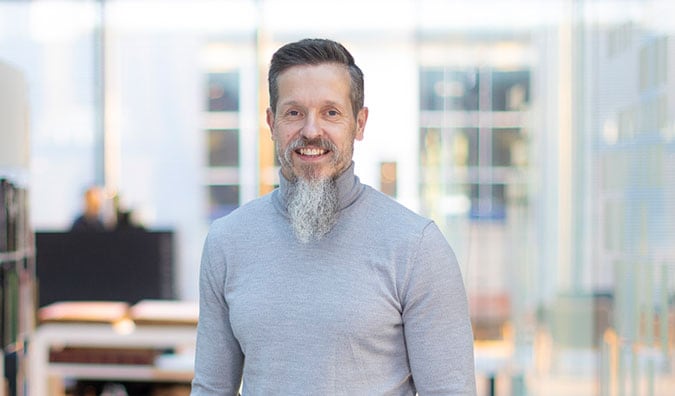“Business strategy is the battle plan for a better future,” says business consultant and trends forecaster Patrick Dixon. If that maxim holds true, Waynn Wu, Chief Strategy Officer at Philip Morris International (PMI), has been delivering better futures to a panoply of firms for more than two decades.
But, what are the secrets of her success? What’s her advice for handling the pressures of disrupting a company? And which of her values remain constant in a dynamic business environment?
You were appointed PMI’s Chief Strategy Officer in early 2023. Can you tell us about your journey here and your hopes for the future?
I came to PMI after 20 years in private equity and various other industries, fostering business growth in the U.S., Europe, and Asia across a range of companies. I’ve driven commercial impact and digital monetization, led digital transformations and global innovations, and orchestrated complex structural mergers and acquisitions (M&A) to create teams that are high-performing and engaged.
As an entrepreneur at heart, I’m driven by the desire to make a difference in the world. And what better way to achieve that than by working for a company that’s focused on consigning cigarettes to museums?
What leadership lessons have underpinned your career to date?
Nothing is more important than learning, growth, and community-building. When I became CSO, I undertook 100 hours of learning, mainly through meeting with people from all parts of the business and actively listening to understand the challenges they were facing. Only when armed with knowledge and understanding grounded in present truths can you expect to have a meaningful impact.
I’ve also learned how vital it is that all team members are fully invested and, despite being located all around the world, for them to feel part of what I call the “Strategy Tribe”—a connected and cohesive and, therefore, highly impactful team.
A critical part of unleashing everyone’s full potential is ensuring they understand the whole picture—not just their piece of the puzzle. So, I assign individuals different roles and responsibilities depending on each project, pulling them out of their silos and immersing them in all aspects of the function. That learning empowers them and enriches the team.
The same applies to leaders. We have to take off our blinders and familiarize ourselves with all aspects of the company. At PMI, cross-functional collaboration—giving leaders and line managers exposure to different priorities and perspectives—is vital to achieving our ambitious goals. It’s the combination of these perspectives that enables us to push boundaries, be disruptive, and deliver solutions, systems, and processes to bring our vision of a world without cigarettes into sharper focus.
Strategy and M&A can be complex and high-pressure environments. How have you learned to handle this?
I often tell people that my first business venture after school didn’t work out. But I learned from my mistakes, collected myself, and changed course. That period taught me what to look out for, as well as the value of resilience and how to grow from challenging experiences.
In terms of strategy and M&A, you cannot maximize positive impacts on a business without first understanding the mechanisms and the purpose of the proposed growth strategy—in our case, replacing cigarettes with better, smoke-free alternatives. Whether it involves strategic internal decisions, mergers, acquisitions, or strategic partnerships, the principle is the same: Understand the potential benefits and threats, and plan how best to achieve the objective whilst keeping within agreed limits.
A lot of focus is given to the deals themselves, such as our acquisition of Swedish Match in 2022, but the most important period is post-deal, ensuring value creation, especially during the first 100 days. Delivering on this is where we gain market credibility, enabling us to make further investments in future. I absolutely love my job, my team, and what we do. We are delivering a smoke-free future, faster.
As an entrepreneur at heart, I’m driven by the desire to make a difference in the world.
AI is obviously a hot topic at the moment. What opportunities do you think it presents for a business like PMI?
It certainly is a strategic opportunity, but it’s not new. In fact, in my first job at McKinsey I was tasked with working on an AI-generated automated sales program. AI has come a long way since then—and there’s no doubting it’s here to stay.
The productivity opportunities with this technology have been well documented, but I’d like to highlight two more. Firstly, topline generation offers real game-changing potential, but does require a substantial investment of both time and money. Secondly, there’s the potential to completely change the way consumers experience products or services and make new memories with our brands. This is the area that excites me the most.
We are exploring all areas of AI at PMI in a pragmatic way. I am really proud of our collaborative and company-wide approach to testing, learning from, and scaling this technology. I’ve often heard people say: “I am not sure if my job will be replaced by AI, but I am quite sure I will be replaced by someone who knows AI.” This is why we’re determined to equip every employee with the understanding and learning pathways to maximize AI’s positive impact in their day-to-day roles through the effective use of this technology.







